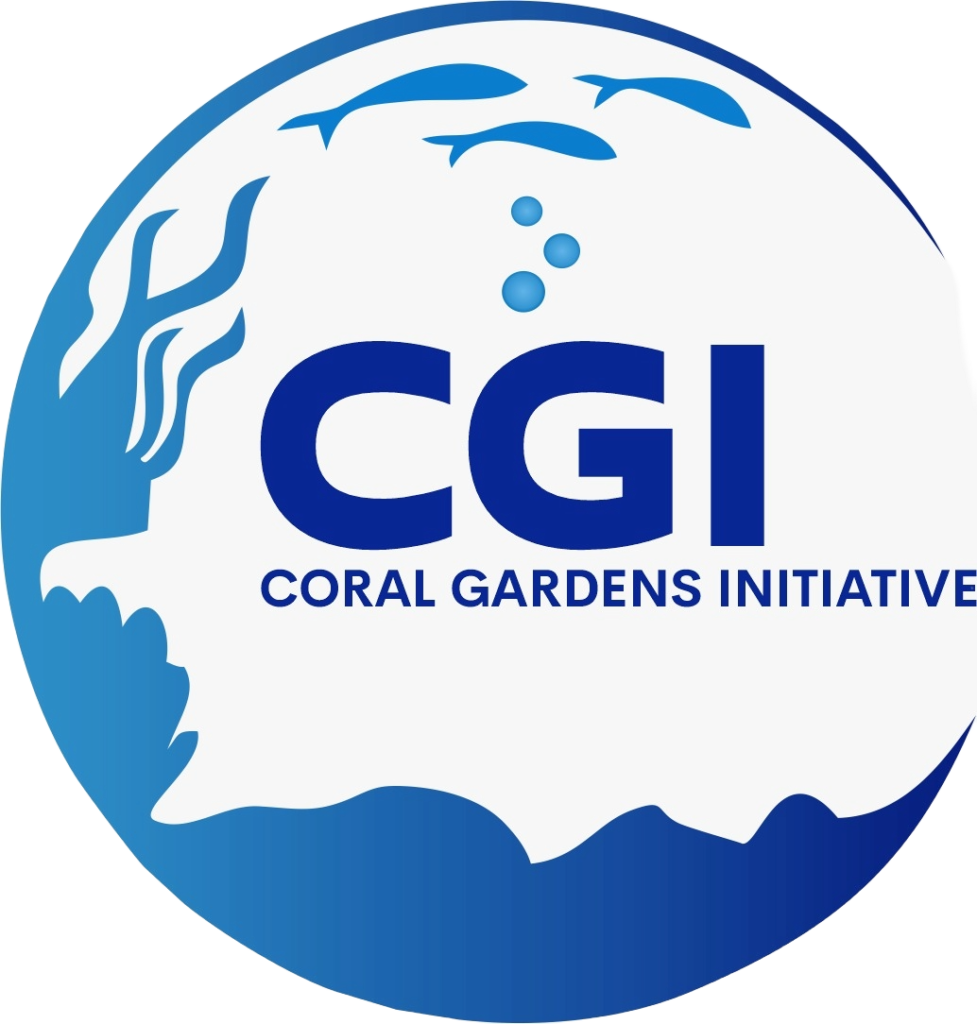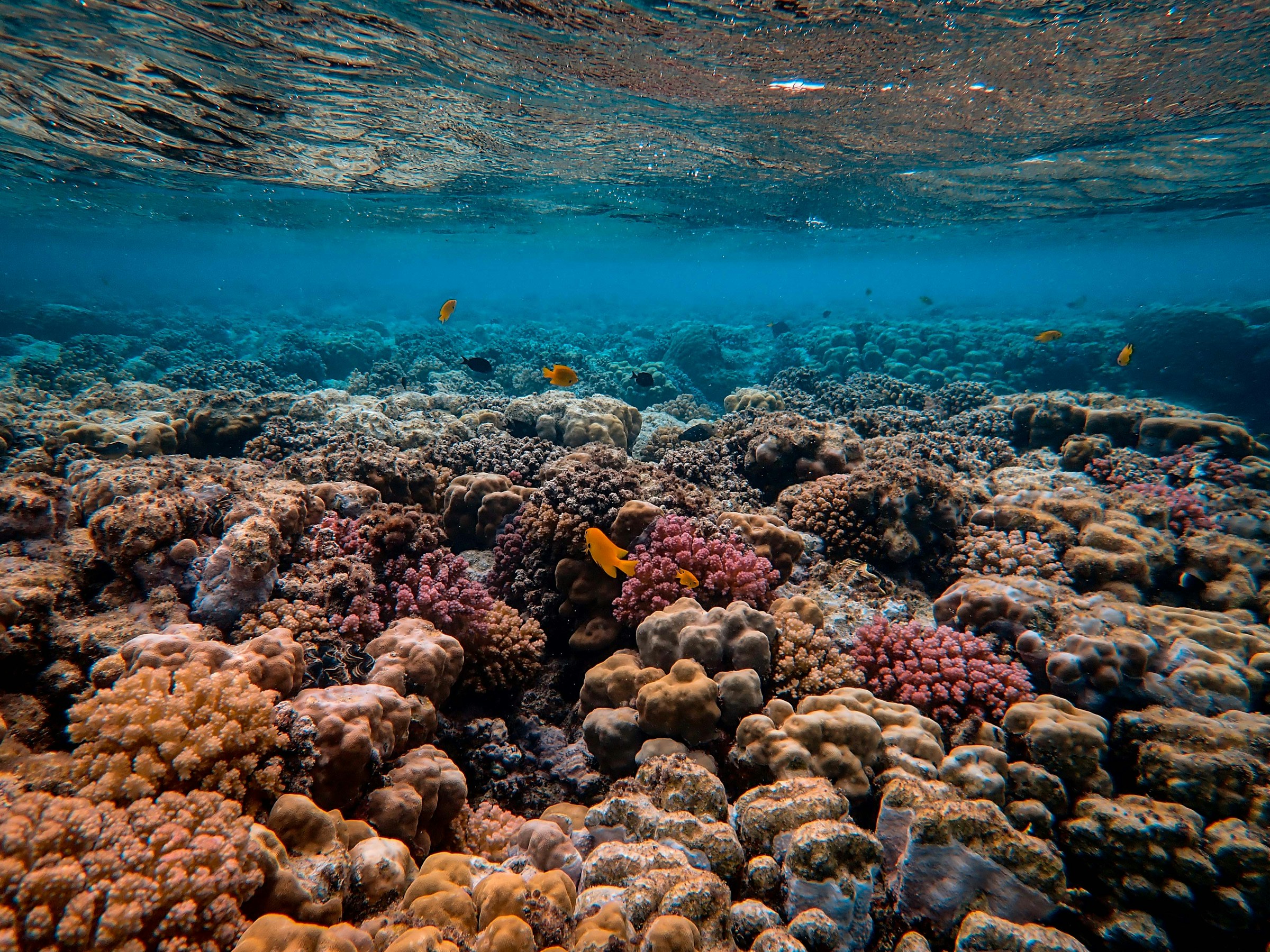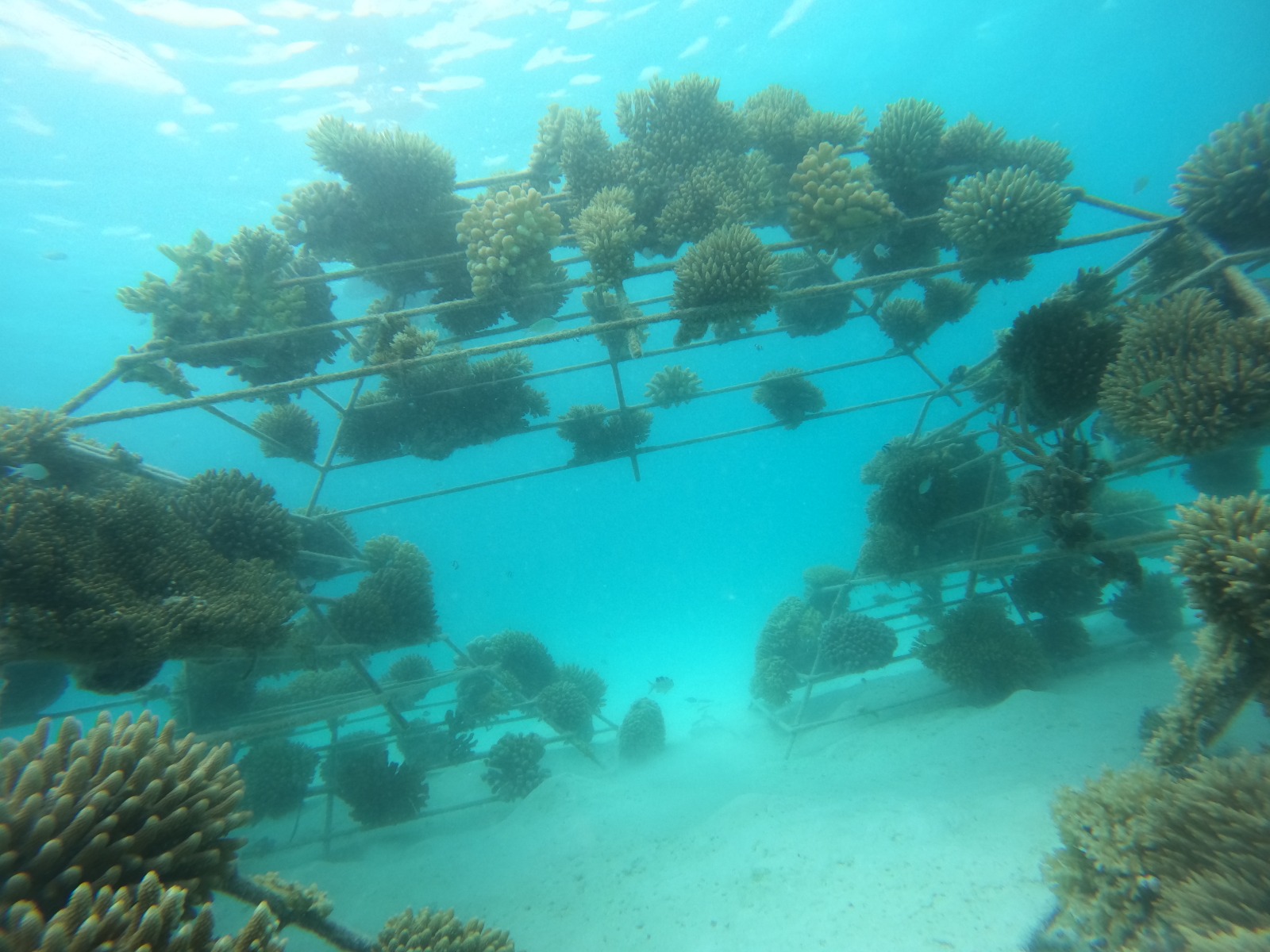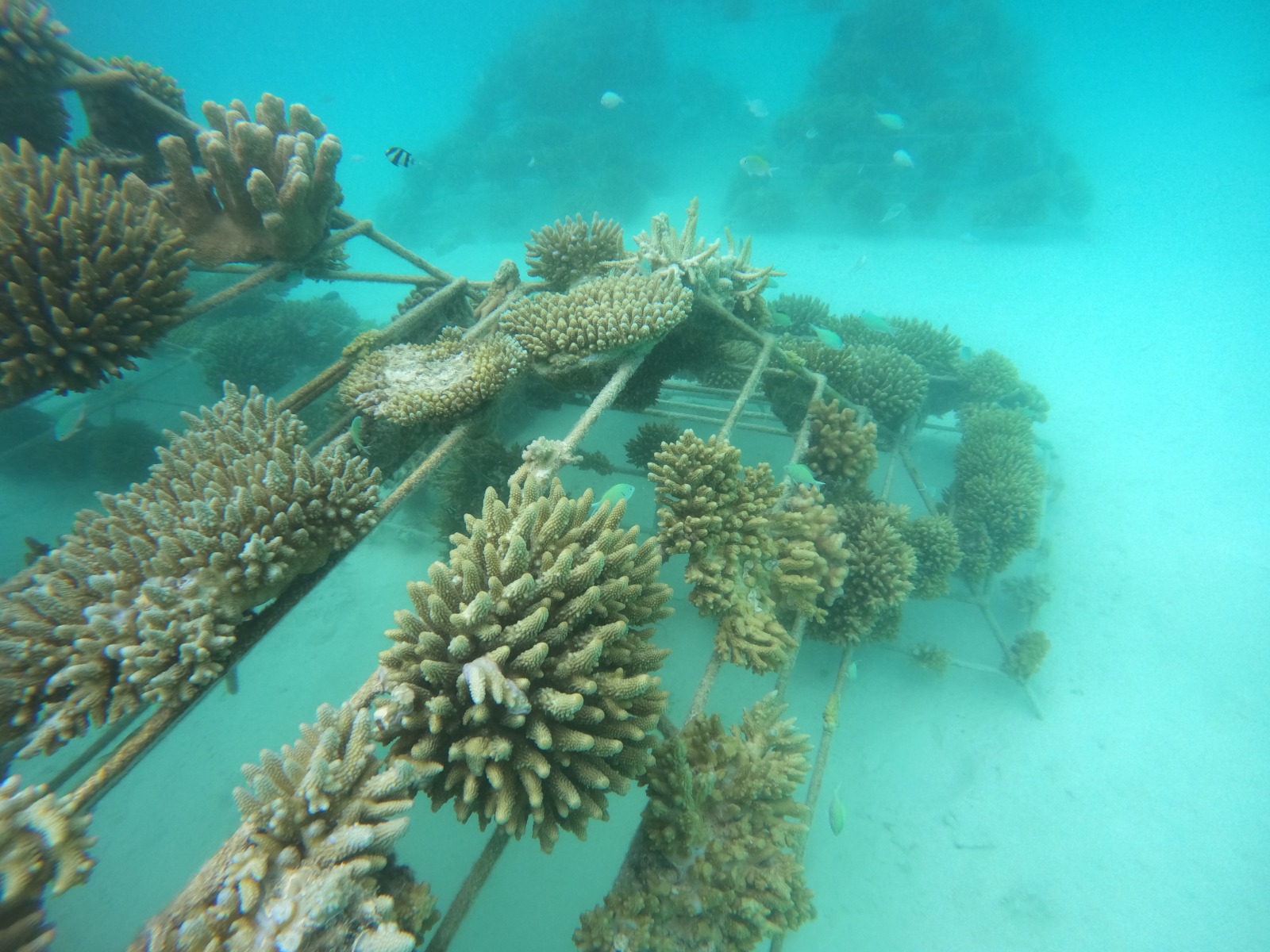

CGI is a non-governmental organization (NGO) passionately committed to the protection and conservation of coral reefs and mangrove ecosystems in the Maldives. Established in 2024, our organization has emerged as a beacon of hope for these critical marine environments, recognizing their profound ecological significance and the urgent need for their preservation.

This has led to the loss of many lives. Many corals are currently in danger, which is an acknowledged fact.
We are working to protect these creatures, and the cooperation of everyone is greatly needed. This effort is essential for the future of the entire Addu Atoll and its economic well-being.
In our vision of coral and mangrove planting, we envision a world where land and sea coexist in perfect harmony, fostering vibrant ecosystems that thrive in balance. Through unwavering dedication and collaborative efforts, we see mangrove forests flourishing along coastlines, their intricate root systems providing a haven for diverse marine species while shielding coastal communities from the impacts of climate change. Beneath the waves, coral reefs burst with life, their vivid colors and myriad inhabitants creating sanctuaries for biodiversity. As guardians of our planet, we work alongside local communities and global partners to plant and nurture these vital ecosystems. Through education and empowerment, we aim to instill a profound understanding of the interconnectedness of all life forms and the critical importance of preserving our natural world for future generations. In our vision, coral and mangrove planting not only restore degraded environments but also foster resilience, prosperity, and a sustainable future for both humanity and the Earth.
Our mission at Coral and Mangrove Planting is to lead the deliberate restoration and preservation efforts of coral reefs and mangrove forests along coastal regions. Through strategic initiatives, we are committed to revitalizing degraded reefs by transplanting coral fragments, nurturing their growth, and reconstructing reef ecosystems. This process not only reinstates critical marine habitats but also strengthens coastal resilience, mitigating the impacts of erosion and storm surges. Simultaneously, we prioritize the cultivation and rehabilitation of mangrove trees, recognizing their essential role in providing refuge for marine life, preventing coastal erosion, and sequestering carbon. We strive to create thriving coastal environments where coral reefs and mangrove forests thrive, guided by meticulous planning, active engagement with communities, and continuous monitoring to ensure the enduring success and sustainability of our restoration endeavors.


CGI recognizes the importance of involving local communities in conservation efforts. We collaborate with coastal communities, empowering them to become stewards of their marine environments. This approach fosters a sense of ownership and commitment, creating a sustainable impact that extends beyond the lifespan of individual projects.


Implementing effective conservation strategies to protect coral reefs and mangroves from threats such as climate change, pollution, overfishing, and habitat destruction. Restoration: Engaging in restoration projects to rehabilitate degraded coral reefs and mangrove areas, employing scientifically sound methodologies and innovative technologies.


Raising awareness about the importance of coral reefs and mangroves through educational programs, outreach and community involvement to instill a sense of responsibility towards these ecosystems. Ocean Literacy Program: Developing educational materials and organizing workshops to enhance public understanding of coral reefs, mangroves, and overall ocean health.

Mangroves, often referred to as the "rainforests of the sea," are critical components of coastal ecosystems worldwide.


We need coral reefs for their invaluable ecological, economic, and societal contributions. Ecologically, coral reefs are biodiversity hotspots, supporting a vast array of marine life and serving as vital habitats for countless species. They play a crucial role in maintaining marine food webs and providing nurseries for commercially important fish species.